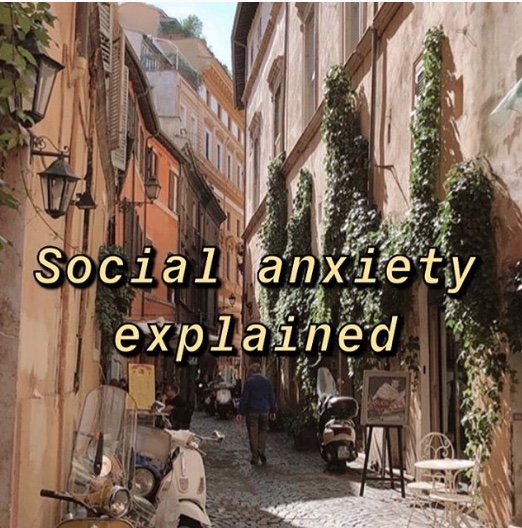Social anxiety is fairly common, and is characterized by a fear that everyone is judging you. This is not to be confused with just being shy. The effects of social anxiety don’t just stop once you’re at home; they tend to be prolonged periods of fear that people are overanalyzing you and judging you as a result. There are a variety of things that make people anxious in social settings such as having to give a presentation, being called on in class, or even eating in front of other people. Besides feeling anxious there are some physical tell-tale signs that you may have social anxiety. These include: an increased heart rate, sweating, flushed cheeks, nausea, speaking in a quiet voice, making little eye contact, and having a rigid body structure. There is no direct answer as to what triggers social anxiety, but scientists believe that it is a result of how you were raised and what events have occurred in your life. If you grew up with parents or siblings with a more reserved nature you are more likely to develop social anxiety. Additionally, if you have ever had an embarrassing or traumatic experience in public that was witnessed by many people, you are more likely to develop social anxiety out of fear that a similar event may occur again. If you feel that you have social anxiety, never fear, it is treatable to lessen the effects. There are support groups which may even feel like exposure therapy, since you are going to have to talk in front of some people you don’t know. However, this can prove to be helpful since all these people feel the same anxiety as you, and by talking about it together you’ll find that you’re not alone and you’ll grow more comfortable talking to new people. Other treatment options include psychotherapy with a medical professional or prescribed medication. If you feel that you have social anxiety stay strong and don’t be afraid to ask for help; there are many people in the same boat as you.
Social anxiety explained
